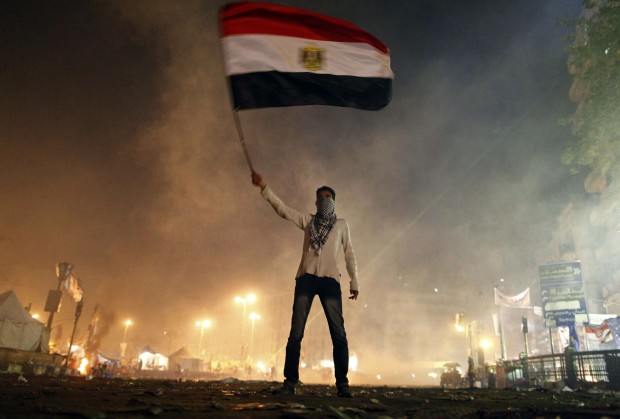The character of the old neighborhood fituwa (a thuggish character who defends the area from outside attack) always provided the late author Naguib Mahfouz with fertile material for his novels a good number of which have been adapted into films. One of the most popular such figures is that of Ashour Al-Naji who in The Harafish pledges to defend his neighborhood from impeding attack.
The phenomenon of the fituwa is well-rooted in the history of Egypt. This is something which goes back to the end of the Mamluk rule and the progressive deterioration in the state’s power and control. This forced some districts of Cairo to get together to protect themselves, installing gates at the entrance of their neighborhoods in order to keep gangs and bandits away. To be more specific, the role of the fituwa can be likened to that of what we might call “people’s committees” today. However with the establishment of the modern state of Egypt under the auspices of Muhammad Ali, the phenomenon of the fituwa began to fade, although this remained partially in effect till the late 1940’s.
This phenomenon was not all bad (despite its negative connotations in Arabic). For instance, in Mahfouz’s story Al-Naji seeks to implement security and social justice in his neighborhood. Legend has it that some of Egypt’s Mamluk rulers—such as Tuman Bay II—sought the support of these fituwas to fend off external threats. At the same time, this is a phenomenon based on the weakness of the concept of the state itself which should possess the sole right to maintain law and order and carry arms according to modern standards as set out since the beginning of the 20th century. However in many cases this has turned into a protection racket, or the illegitimate use of force, or the implementation of laws that are the purview of the judiciary and the courts, not to mention instituting a culture of fear.
With the collapse of security and the police’s inability to maintain law and order in post-25 January Egypt, several copies of Naji Ashour—named “people’s committees”—have emerged to protect neighbors from criminal behavior and violence perpetrated by figures seeking to exploit the situation to intimidate the general public. This is something that naturally has negative implications, including stories of committees exploiting the situation to carry out criminal acts themselves.
One interesting story is about a fituwa named, Sousta, which means “zipper” in colloquial Egyptian. There was a property deal taking place in Sousta’s neighborhood between two parties, the likes of which dozens or hundreds take place every day in Cairo’s old neighborhoods. However after the deal had been concluded, Sousta appeared on the scene to say that one party had not received itsfair share. The buyer expressed surprise only to find himself surrounded by youths claiming that they had protected the house during the revolution and therefore deserved recompense. The buyer decided not to rock the boat and paid the required price and the story ended.
Under normal circumstances, it would be inconceivable for something like this to happen. This phenomenon, despite the reasons behind this like soaring unemployment and a struggling economy, is a bad sign indicating that the country is moving backwards. For it is not right that we should see a phenomenon from the Mumluk era, or the early 20th century, taking place in Egypt today, particularly after the efforts of generations upon generations to build a modern state.
It is understood that some state organizations in developing countries deviate from the correct course. The best solution to this is reform, development, consecrating law and order, and building on the achievements of previous generations. It is not rational to suppose that everything that happened in the past was bad, and if every generation discarded its past and decided to start from scratch then there would be no civilization or culture. This is because building a civilization is an accumulative process.
The Arab republics that witnessed revolutions or uprisings remain—more than two years later—in a state of flux. We have not seen political stability due to the raging political scene and the angry masses on the street. Until now, they have been unable to draft consensual constitutions that will secure a new future within a framework that all parties can accept. As for Syria, this is an exceptional case, and nobody can predict what the country will look like once the guns fall silent.
We understand that the transitional period will take some time until all parties can reach a political understandings; however this same period must not become a reason for the imposition of the rule of the street or the destruction of the state itself. Otherwise, achieving reform will be next to impossible.
